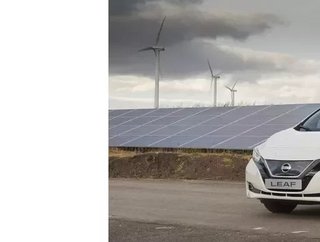Nissan plans 20MW solar extension at Sunderland plant

Nissan has announced plans for a major expansion to renewable energy generation at its Sunderland plant in the UK.
Complementing the existing wind turbines and solar farm, the proposed 20MW solar farm extension represents a further step in Nissan’s path to carbon neutrality and would raise total renewables output to 32MW.
If approved, the 37,000-panel expansion would result in 20 percent of the plant’s energy coming from all onsite renewables, enough to build every single zero-emission Nissan LEAF sold in Europe. The plans are to be shared with the local community this week, ahead of a formal planning application being submitted later this year.
Alan Johnson, Vice President Manufacturing at Nissan Sunderland, said: “Renewables have already made a big difference to our business and we continue to look for ways to make the manufacturing process more sustainable.
“As our products made in Sunderland become increasingly electrified, our manufacturing operations are an important part of the ecosystem that will take us to carbon neutrality.”
Nissan began integrating renewable energy sources in Sunderland in 2005 when the company installed its first wind turbines on site. These 10 turbines contribute 6.6MW power, with the existing 4.75MW solar farm installed in 2016.
The solar farm is being developed and installed by partner company Engenera.
Nissan has set itself the goal to achieve carbon neutrality across the company’s operations and the life cycle of its products by 2050. As part of this effort, by the early 2030s every all-new Nissan vehicle offering in key markets will be electrified, as well as introducing innovations in electrification and manufacturing technology.
Nissan launched LEAF, the world's first mass-market all-electric vehicle, more than ten years ago. Today it is driven by more than 180,000 EV drivers across Europe.
During that time LEAF owners have prevented 2.5 million tonnes of CO2 from entering the atmosphere every year.






